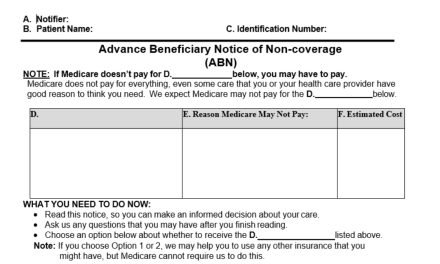
If You Can’t Remember What Supplement to Take for Your Memory, Maybe You Should Read This

Lately, it seems as though every time I open up my News app on my phone, there is an article about memory loss, dementia, or Alzheimer’s. It is a popular area of study, and, when I take a look into the statistics, the average reported number is that 1 in 8 people suffer from some sort of memory deficit in the United States, with a large portion being those of us who are over 65 years in age. While some of us and our patients are maybe years away from that number, others of us have crossed into the probability of that statistic, and it is a growing concern that has the supplement industry targeting those with symptoms.
Published in the Journal of Alternative and Complementary Medicine in April 2020 was an interesting review titled: “A Public Health Issue: Dietary Supplements Promoted for Brain Health and Cognitive Performance.” There were 650 products evaluated that targeted brain health. Many made claims that could not be substantiated. There is some evidence, however, to support a handful of nutrients for brain health and also may help slow the decline of our memory.
Phosphatidylserine
Phosphatidylserine (PS), commonly used in adrenal dysfunction to lower cortisol levels, is necessary for healthy nerve cell membranes and myelin. Up to 800mg/d can be absorbed and crosses the blood-brain barrier, all while safely slowing, halting, or reversing biochemical alterations and structural deterioration in nerve cells. (1) It has been demonstrated to support human cognitive functions, including the formation of short-term memory, the consolidation of long-term memory, and the ability to learn and recall information, the ability to focus attention and concentrate, the ability to reason and solve problems, language skills, and the ability to communicate. (1) If stress level is high, taking PS during the day can serve a dual purpose. If the problem is lack of sleep or the inability to fall asleep, then taking it at bedtime will provide the additional benefit of better sleep. One side effect to note is the increase in strange and colorful dreams. A rare occurrence, scary dreams are also possible, so should that occur, a reduction in dosage or complete elimination may be necessary.
Vitamin B12
Vitamin B12, which we commonly see in practice in much lower than optimal amounts, may also play a very important role. One of its functions is as a cofactor for the enzymes methionine and methylmalonylCoA mutase. Methionine is essential, and any interference in the synthase reaction can lead to the elevation of homocysteine. Typically, an elevation over 12 mcmol/L is an inflammatory marker for the heart, and any value over 7 mcmol/L can indicate the susceptibility to neurodegeneration. The goal would be to get a patient’s B12 level between 900-1200 pg/mL and a homocysteine level under 7 mcmol/L. There is also a continuous inverse relationship between serum B12 and a variety of undesirable outcomes, including neural tube defects, stroke, and dementia. (2) Taking a B complex along the B12 or a methylated form, if needed, will help increase the absorption.
After the consumption of folate or folic acid, found in various foods, including spinach and oranges, the liver generates several forms of folate after the intestine has absorbed vitamin B. Folate deficiency, commonly caused by low dietary intake, has been associated with physiological abnormalities that may occur during development and adulthood. Adequate levels of folate are essential for brain function, and a deficiency can lead to neurological disorders, such as depression and cognitive impairment. Taking folate as an additional supplement or in a B complex may help prevent cognitive decline and dementia as we age. A recent randomized clinical trial indicated that a 3-year folic acid supplementation can help to reduce the age-related decline in cognitive function. (6)
Ginkgo Biloba
Ginkgo biloba extract (GBE) is used as a single ingredient and also typically in combo products for brain health and neurotransmitter support, which is important for cognition. The active compounds of GBE are primarily flavonol glycosides (24%) and terpene compounds, such as ginkgolides and bilobalide (6%), with smaller amounts of proanthocyanidins (4). The mechanism of action is in its ability for free radical scavenging and as an antioxidant.
Saffron
Saffron or C. sativus extract (60 mg/kg.) has shown a reversal of age-related memory deficits in animal studies. Among the potential mechanisms, the promotion of long-term potentiation (LTP), the anti-amyloidogenic activity, its inhibitory action on the AChE activity, and their potent antioxidant properties are proposed to explain their action on cognition. (8). There has been good evidence that saffron and its major component Crocin are significantly useful for cognition. Preclinical studies demonstrated its efficacy in attenuating memory disorders in animal models related to Alzheimer’s Disease, cerebral injuries, or schizophrenia. (8)
One of my favorite combination products contains B6, saffron and phosphatidylserine. Increasing choline levels seems to potentiate the benefits as well. For those who are vitamin E deficient, the addition of vitamin E may also improve their cognitive abilities. A study published in JAMA in 2014 found that patients with mild or moderate Alzheimer’s disease showed a slower functional decline compared with a placebo group, when supplementing with 2000 iu/d of alpha tocopherol vitamin E. The mechanisms by which vitamin E can affect cognition are not well-understood, but they are likely to be related to the putative capacity of antioxidants to support synaptic plasticity by protecting synaptic membranes from oxidation (9) Contraindications would include those on blood thinners or with prostate cancer. (9)
Omega – 3 fatty acids, specifically DHA, can affect the synaptic function and cognitive abilities. DHA constitutes more than 30% of the total phospholipid composition of plasma membranes in the brain and is thus crucial for neuronal excitability and synaptic function. (7) They also activate energy-generation metabolic pathways that affect brain derived neurotrophic factor and insulin-like growth factor 1, ultimately supporting long-term potentiation associated with learning and memory. (7). Assessing for the levels of DHA through a urine sample can provide an indication of deficiency or adequacy. In contrast to the benefits of DHA, diets with high contents of trans- and saturated fats can adversely affect cognition. (10)
Some other nutrients worth noting include vitamin D, which has been shown to preserve cognition in the elderly, although most of us have suboptimal levels. (10). It is not uncommon to see levels under 30 ng/mL with an optimal level being between 60-80 ng/mL. Supplementing with 4000-8000 iu/day to achieve this level would prove useful. Low selenium levels are also associated with lower cognitive function, so utilizing 200 mcg/day and checking serum levels to make sure over-consumption is not achieved would make a great addition to the protocol for memory retention. High calcium has been associated with cognitive decline as well as elevated levels of zinc and low plasma concentrations of copper. Iron levels may also play a role in young women, especially those whose levels fall during menstruation. Thus, checking micronutrients will allow you to catch deficiencies that can be corrected very simply.
Conclusion
Incorporating a few of these supplements may alter the course of neurodegeneration and a declining memory. As previously mentioned, with over 650 products promoting brain health and a better memory, sticking with those backed with some research may prove to be effective. Although a physician can make no promises, as every patient responds differently and the underlying cause to the memory loss can be way more involved than simple deficiencies, this is still a good starting point; that is if you can remember to take your supplements.
References
- Glade MJ, Smith K. Phosphatidylserine and the human brain. Nutrition. 2015 Jun;31(6):781-6. doi: 10.1016/j.nut.2014.10.014. Epub 2014 Nov 4. PMID: 25933483.
- Smith AD, Warren MJ, Refsum H. Vitamin B12. Adv Food Nutr Res. 2018;83:215-279. doi: 10.1016/bs.afnr.2017.11.005. Epub 2018 Feb 2. PMID: 29477223.
- R. B. Silberstein, A. Pipingas, J. Song, D.A. Camfield, P.J. Nathan, C. Stough, “Esamining Brain-Cognition Effects of Ginkgo Biloba Extract: Brain Activation in the Left Temporal and Left Prefrontal Cortez in an Object Working Memory Task”, Evidence-Based Complementary and Alternative Medicine, vol. 2011, Article ID 164139, 10 pages 2011.
- F. V. DeFeudis and K. Drieu, “Ginkgo biloba extract (EGb 761) and CNS functions: basic studies and clinical applications,” Current Drug Targets, vol. 1, no. 1, pp. 25–58, 2000.
- Crawford C, Boyd C, Avula B, Wang YH, Khan IA, Deuster PA. A Public Health Issue: Dietary Supplements Promoted for Brain Health and Cognitive Performance. J Altern Complement Med. 2020;26(4):265-272. doi:10.1089/acm.2019.0447
- Gómez-Pinilla F. Brain foods: the effects of nutrients on brain function. Nat Rev Neurosci. 2008;9(7):568-578. doi:10.1038/nrn2421
- Perkins AJ, Hendrie HC, Callahan CM, Gao S, Unverzagt FW, Xu Y, Hall KS, Hui SL. Association of antioxidants with memory in a multiethnic elderly sample using the Third National Health and Nutrition Examination Survey. Am J Epidemiol. 1999 Jul 1;150(1):37-44. doi: 10.1093/oxfordjournals.aje.a009915. PMID: 10400551.
- Pitsikas N. The Effect of Crocus sativus L. and Its Constituents on Memory: Basic Studies and Clinical Applications. Evid Based Complement Alternat Med. 2015;2015:926284. doi:10.1155/2015/926284
- Ashpari Z, Watson K. Brain vitamins: can vitamins boost memory? Healthline website. www.healthline.com/health/dementia/vitamins-memory-loss#vitamin-e3. Updated January 25, 2017.
- Cansino S, Torres-Trejo F, Estrada-Manilla C, Flores-Mendoza A, Ramírez-Pérez G, Ruiz-Velasco S. Influence of Dietary Nutrient Intake on Episodic Memory Across the Adult Life Span. Front Aging Neurosci. 2021 Aug 30;13:724595. doi: 10.3389/fnagi.2021.724595. PMID: 34526891; PMCID: PMC8435902.



















